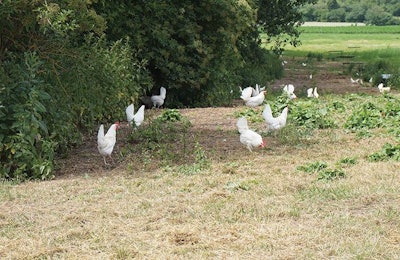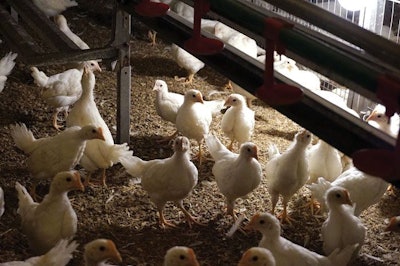
Regulations mandating how laying hens are raised are becoming more commonplace across the globe. The International Egg Commission (IEC) has a database where they keep track of each continent’s — or more specifically, each country’s — animal welfare legislation. Peter van Horne, an economic analyst with IEC, spoke about the wide range of different regulations regarding laying hens at the 2018 International Egg Commission Business Conference 2018 in April.
“The IEC has a website page dedicated to major legislation on beak trimming, bans on cages, any legislation on animal welfare issue worldwide,” van Horne said. While he explained that the website could give individuals a more in-depth look at what is going on in each country, he did briefly cover some areas around the world.
Rules and regulations around the world
Europe has a very cut-and-dried explanation of the rules pertaining to how they expect all farm animals to be treated, and those rules have been in place for many years, explained van Horne. The rules include humane care during transportation. For layers specifically, the rules eliminate the use of conventional cages and mandate the use of enriched cages or cage-free housing. He added that European legislation is very specific on space allotments and feeding methods.
Within Europe there are two countries, Germany and the Netherlands, that decided the European standards were not high enough so they have created their own. These two countries have what they call a colony cage, which is a bigger cage with more space and enrichment, van Horne explained. The German Bundestag took advantage of the option to enforce the cage ban at an earlier date, three years sooner, and to set a higher standard for hen housing — Kleingruppenhaltungen (enriched colony cages) for Germany versus the smaller enriched cage for the rest of the EU. Free-range layers are provided at least 4 square meters of outdoor space per bird in Germany.
Denmark and Sweden also have additional regulations.
Switzerland and Norway also have different legislation on keeping layers. If a person could choose to be a layer in their next life, joked van Horne, they should choose to be in Switzerland because it is “really chicken heaven.” Switzerland was the first country to ban the use of cages for housing laying hens on January 1, 1992. In 2014, Switzerland was among four countries that followed animal welfare standards and deemed worthy of the highest "A" rating in the Animal Protection Index issued by the UK-based World Animal Protection (WAP) organization.
In any country, legislation is important, but the key is to remember that ultimately the market drives producers’ decisions. “You can produce eggs according to the legislation, but the market has a demand which can be very different from the legislation,” van Horne said. This is especially obvious in the U.S. with cage-free eggs, he noted.
In Switzerland, Australia, Germany and the Netherlands, the market is pushing forward to cage-free systems and free-range or barn systems, van Horne explained. There are supermarkets in the Netherlands that only sell free-range eggs.

German pullets are trained in order to encourage movement throughout the aviary system. | Terrence O'Keefe
Australia has different guidelines at the state level’s legislation. Some parts of the U.S. have similar legislation; for example, California, Maryland, Massachusetts, Oregon, Washington, Rhode Island and Michigan have passed specific legislation. “Several states including Illinois, Indiana, Louisiana, Ohio, Utah and West Virginia maintain a committee that sets/advises on livestock standards,” explained Larry Sadler, vice president of animal welfare with the United Egg Producers.
New Zealand, South Africa and Canada all have a code of practice for the whole country. Turkey has some welfare legislation on the general terms. Colombia doesn’t have any legislation.
The IEC would appreciate information on legislation around the world. “If there is no legislation, that’s also news we can add to the database,” van Horne said.
For more specific legislation in each region of the world, IEC members can access the report online.
Does income impact welfare?
Recently, van Horne tried to find correlation between a country’s income level and their animal welfare standards. “It’s not scientific, but I’m trying to analyze what’s going [on],” he said. He did see some correlation.
Switzerland not only has some of the strictest animal welfare practices in the world, but they are also one of the richest countries in the world, he explained. Europe, the Netherlands and Germany all had a legislation that fit within the means of their country’s income.
“The United States is really moving forward to a higher level, so that reflects their income,” van Horne said.
He explained that low income countries generally don’t have any legislation pertaining to this topic.
National Egg Farmers urges Congress to support King amendment: www.WATTAgNet.com/articles/35696















